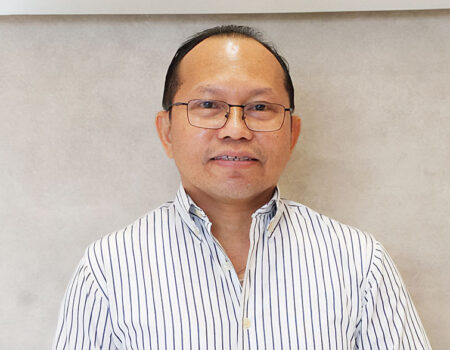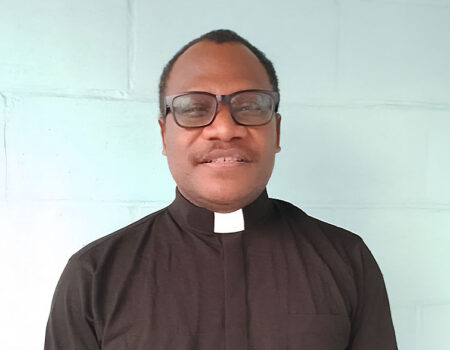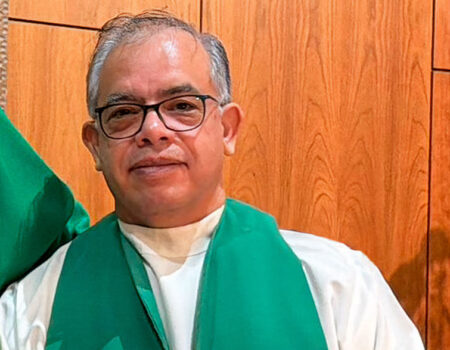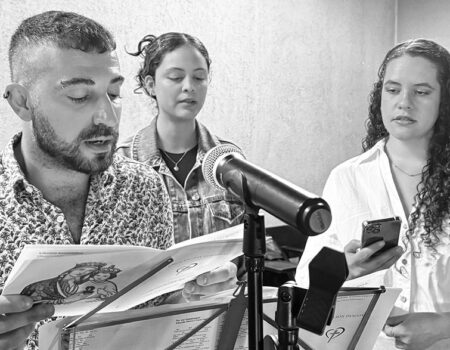JPIC: Caritas in Action
Tuesday September 30, 2025
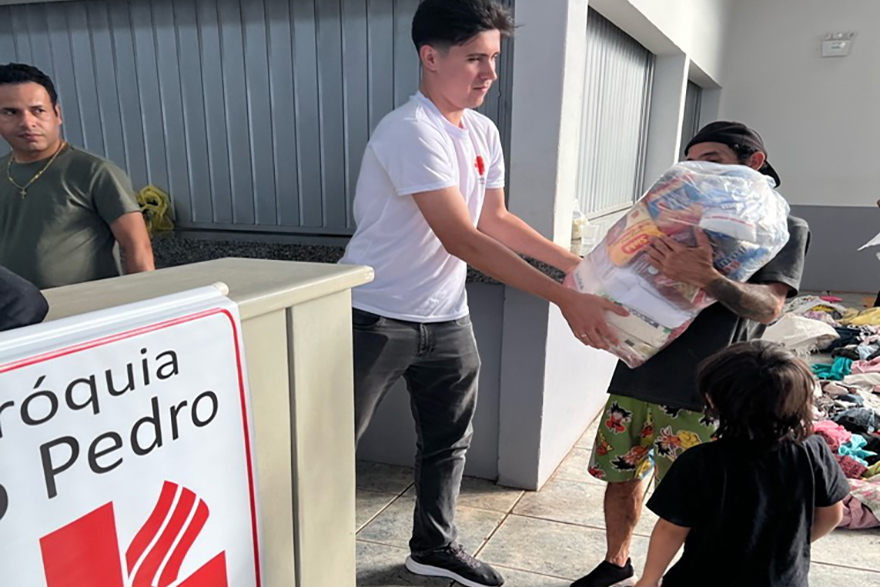
Living the Gospel at the Borders
“For I was hungry and you gave me food, I was thirsty and you gave me drink, I was a stranger and you welcomed me.”– Matthew 25:35
Foz do Iguaçu, Paraná – Brazil
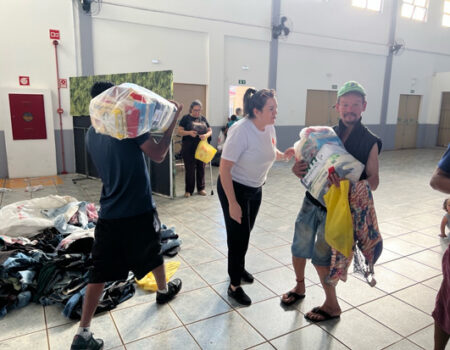
When you enter the parish of São Pedro in Foz do Iguaçu, you quickly notice that this is no ordinary community. Here, in the midst of a border region where Brazil, Paraguay, and Argentina meet, the Gospel is not only preached from the pulpit—it is lived daily through Caritas, the social arm of the Church that embodies Justice, Peace, and the Integrity of Creation (JPIC).
In a recent conversation, Jefferson Drum Morales, coordinator of Caritas São Pedro, recalls how it all began:
“People used to come to the parish office for food, but we didn’t know who truly needed it. Father Ivan, then the parish priest, invited me to join Caritas. We started visiting families—seeing with our own eyes their struggles, their needs. That was the beginning of a mission that has never stopped growing.”
From those humble beginnings, Caritas expanded beyond distributing food. Today, it also provides clothing, furniture, medicine, water and even helps pay electricity bills for families in crisis. Each second Sunday of the month is now celebrated as Charity Sunday. Parishioners bring donations of food, clothing, or any other items they can share, placing them at the service of their brothers and sisters in need.
Jefferson explains that the needs are constantly shifting:
“Every month, the number of people who come to us increases, but we also have to carefully evaluate, through our registry, whether these families truly need assistance. There were months where we served around 50 families with food baskets, but other times it has dropped to only 20. It varies, you know. What matters is that we are present, ready to respond, whether it is for many or for few.”
Father Dirceu Lopez, msc, the current parish priest, has continued to strengthen this mission:
“When I arrived, I wanted to understand how Caritas worked. Once I saw the dedication of the volunteers, I knew I had to support it fully—with space, resources, and encouragement. This is the Church at her best: serving Christ in the poor.”
The work is challenging. Foz do Iguaçu has become a refuge for migrants and displaced people, especially Venezuelans fleeing crisis, along with families from Paraguay and Argentina seeking stability in Brazil. In them, Caritas sees not statistics, but living persons—mothers, fathers, and children whose dignity must be upheld.
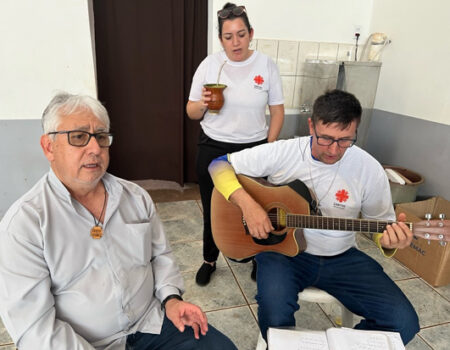
Volunteers are the heartbeat of this mission. Each one finds their role: packing food bundles, visiting families, offering legal guidance, giving counselling, or simply listening with compassion. Jefferson explains:
“Everyone has a gift, a way to serve. Some pack bags, others visit homes, others pray with families. The important thing is that everyone can do something. This is how the Gospel becomes concrete.”
In a world marked by migration crises, poverty, wars, ecological destruction, and countless forms of human suffering, the experience of Caritas in São Pedro Parish reminds us that JPIC is not an abstract principle. It is an invitation to see, judge, and act, just as the Gospel calls us to do.
Standing at the triple border, this community becomes a beacon of hope: proving that even in times of uncertainty, faith can inspire people to build bridges, not walls.
As Jefferson concludes with conviction:
“Caritas is not just about giving food, it’s about restoring dignity. We may not solve all the world’s problems, but here, at least, no one is left unseen.”
And in this work, one sees the truth of Jesus’ words:
“Whatever you did for one of the least of these brothers and sisters of mine, you did for me.” (Matthew 25:40).


